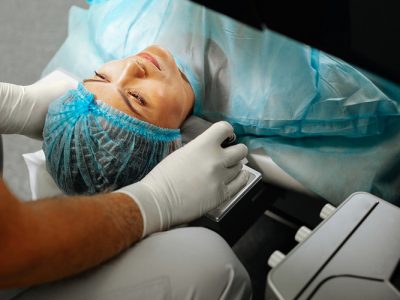The thyroid is a small gland located at the base of the neck, but problems associated with it can lead to significant health issues if left untreated. While many Singaporeans associate thyroid conditions with endocrinologists, an ENT clinic in Singapore often provides the first line of evaluation and management.
An ENT clinic is where diagnosis and treatment can begin, particularly in cases involving the thyroid gland’s physical structure, airway compression, or neck-related complications. Recognising the signs early allows patients to seek timely intervention from a thyroid specialist.
5 Signs Indicating You Should Visit an ENT Clinic for Thyroid Concerns
1. Persistent Swelling in the Neck
One of the most common signs that requires evaluation is a lump or swelling in the front of the neck. This instance may indicate the presence of a thyroid nodule, goitre, or cyst. While not every lump is malignant, it is important to determine whether it is benign or cancerous. ENT specialists are trained to carry out physical examinations, request ultrasounds, and recommend fine-needle aspiration if necessary. A persistent or enlarging swelling should not be ignored, as it could signal an underlying thyroid disorder.
2. Hoarseness and Voice Changes
Voice changes are another key sign of thyroid-related issues that fall within the scope of ENT practice. The thyroid gland sits close to the vocal cords and recurrent laryngeal nerves. Once nodules or growths press on these structures, patients may notice hoarseness, breathy speech, or difficulty projecting their voice. Such changes lasting more than a few weeks should be assessed in an ENT clinic. Specialists may use laryngoscopy to check whether the vocal cords are being affected by thyroid-related conditions.
3. Difficulty Swallowing or Breathing
Enlarged thyroid glands or nodules can compress nearby structures in the neck, leading to difficulty swallowing solid foods or even causing shortness of breath when lying flat. These symptoms are not limited to respiratory conditions; they can also point to thyroid enlargement pressing against the oesophagus or trachea. An ENT evaluation helps to identify the extent of compression and determine whether surgical intervention is needed to relieve the obstruction.
4. Unexplained Neck Pain or Discomfort
Though less common, some thyroid disorders present with pain in the lower neck. Patients may experience discomfort when turning the head, swallowing, or applying pressure in the area. ENT specialists investigate such pain to rule out thyroiditis or other structural abnormalities. Inflammation of the thyroid gland can be acute, subacute, or chronic, and timely consultation ensures that the appropriate treatment is administered.
5. Family History and Risk Factors
Individuals with a family history of thyroid cancer or genetic conditions that predispose them to thyroid disorders should be more alert to symptoms. ENT clinics often see patients referred for evaluation due to hereditary risks. Once there is a strong family background of thyroid disease, seeking early assessment can lead to proactive management. ENT specialists collaborate with endocrinologists and other healthcare professionals to provide a comprehensive care pathway.
When to Seek a Thyroid Specialist
While general practitioners may identify early thyroid symptoms, referral to a thyroid specialist in Singapore—often an ENT consultant—is necessary when symptoms involve structural or airway concerns. ENT clinics are equipped to carry out investigations, perform biopsies, and, where indicated, carry out thyroid surgery. Endocrinologists may also be involved for ongoing management of hormonal imbalances, but ENT specialists are critical in addressing the physical aspects of thyroid conditions.
Conclusion
Recognising the signs of thyroid concerns is vital for timely treatment. Swelling in the neck, voice changes, difficulty swallowing, unexplained neck discomfort, and family risk factors are all reasons to visit an ENT clinic in Singapore. Early consultation ensures that conditions are identified before they progress, with ENT specialists playing a key role in the surgical and structural management of thyroid disorders.
Contact Dr Leslie Koh to ensure your condition is properly assessed and managed before it develops into a more serious issue.













Comments